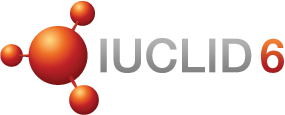US FDA toxicity data
Data are provided by the US FDA that contain the results of preclinical animal studies and human data on approved pharmaceuticals.
As part of an ECHA project supported by a Framework Contract, the data have been migrated to an OECD harmonised template (OHT) and complemented by an ontology. The data have been entered into endpoint study records in a structured manner to enhance data processing. The information can contribute, among other purposes, to the development of predictive toxicology models.
This can contribute to the development of predictive toxicological models and aim at facilitating correlation and concordance analyses based on these animal and human data. To facilitate such data processing, the data includes tabular overviews of observed effects and no-observed effects, and their respective levels.
These data were developed by extracting data from pharmacological reviews of repeat-dose, carcinogenicity, developmental, and reproductive toxicity studies. In this data, observed and no-observed effects are linked to the respective observed-effect and no-observed effect levels. It also includes human data extracted from relevant sections of the standard product labels of the approved drugs.
In November 2023, an additional 180 new datasets were added to the already published 348 datasets. Therefore, the data contain information on 528 approved pharmaceuticals comprising comprising the results of repeat-dose toxicity studies, carcinogenicity studies, developmental toxicity studies, reproductive toxicity studies, and more than 20k novel and unique standardised terms in comparison to UMLS, including ontological terms for reproductive and endocrine effects. The IUCLID data are accompanied by a substance index, so that data users can readily access the available information for a given substance. It contains the list of approved pharmaceuticals included in the data, their substance identity information, and the dossier UUIDs.
While producing the 528 datasets, the so called Preclinical and Clinical Concept Ontology (PaCCO) was developed, representing a systematic method of organising and classifying data related to both animal studies and human pharmaceutical information. PaCCO is constructed from analysing the 528 datasets integrating the human phenotype (HP) and the mammalian phenotype (MP) ontologies. The ontology is included in the download.
For more information concerning this project, please contact ECHA.
Download archive v2 07.11.2023
The data are made available in a zip archive containing IUCLID dossiers in i6z format. The dossiers can be imported into IUCLID individually, or in bulk by dragging and dropping the zip archive onto the dashboard of the IUCLID interface. An index of the substances is provided here. To check the integrity of a download, compare the checksum of the downloaded archive with the checksum on the page here.
Before downloading, you must accept the licence agreement.
If you use the data of this project, please refer to the following publication:
Martina Evangelisti, Marco Daniele Parenti, Greta Varchi, Jorge Franco, Jochen vom Brocke, Panagiotis G. Karamertzanis, Alberto Del Rio, Ingo Bichlmaier. A non-clinical and clinical IUCLID database for 530 pharmaceuticals (part I): Methodological aspects of its development. Regulatory Toxicology and Pharmacology, 2023, 105416. https://doi.org/10.1016/j.yrtph.2023.105416
*) The publication refers to 530 datasets; however, the final number is 528.

